The 9 Best retinol creams and serums for each and every skin type
We've tried and tested all the best retinol creams and serums - and quizzed the experts on how to use the skin-loving powerhouse correctly...
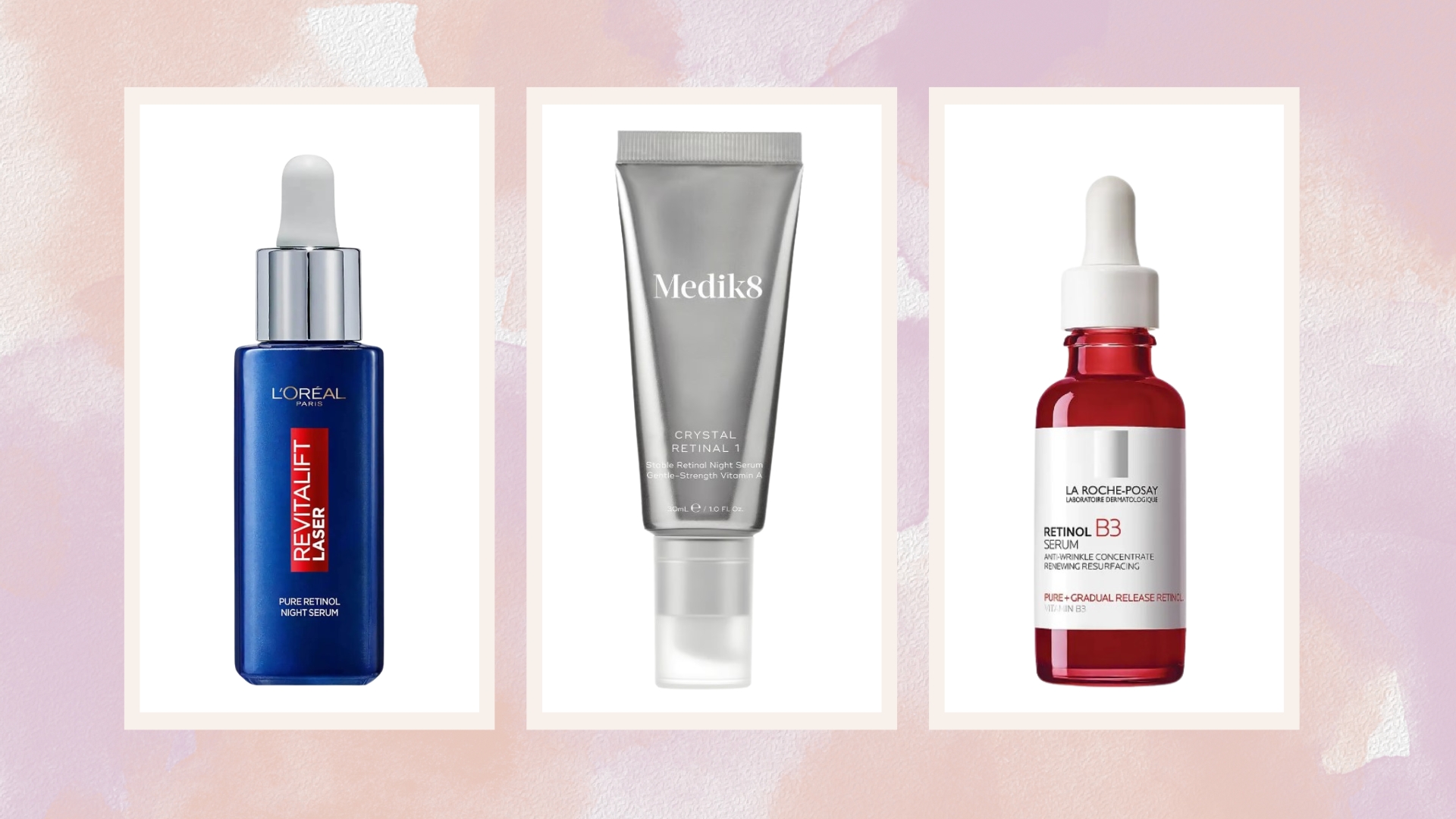

Do you wish your skin could be smoother? How about clearer, more even-toned and brighter? If so, one of the best retinol creams or serums could be just the thing to add to your routine.
Retinol is a hugely popular skincare ingredient, though it can be rather intimidating especially when learning how to use retinol is shrouded in myth and miscommunication. So, what is it exactly? "Retinol is a derivative of vitamin A, and one of the most widely researched and proven skincare ingredients available today," explains facial aesthetics expert and oculoplastic surgeon Dr. Maryam Zamani. "It is a powerhouse vitamin that promotes cell turnover, diminishing the appearance of fine lines, wrinkles, uneven skin tone, and blemishes. It is also an important topical used in treating acne and decreasing sebum production."
Thanks to its wrinkle-busting powers, it's touted as one of the best skincare products you can add to your arsenal. But that being said, even the more luxe and popular retinol creams can cause irritation without careful use. So, to help you find the right retinol and routine, we've tried and tested all the best formulas - and quizzed the experts on how to use them safely...
The 9 best retinol products, according to our beauty team
From night creams to serums, these 9 formulas range from beginner-friendly to more potent treatments - for those who's skin is already adjusted to the ingredient - vetted by our beauty team...
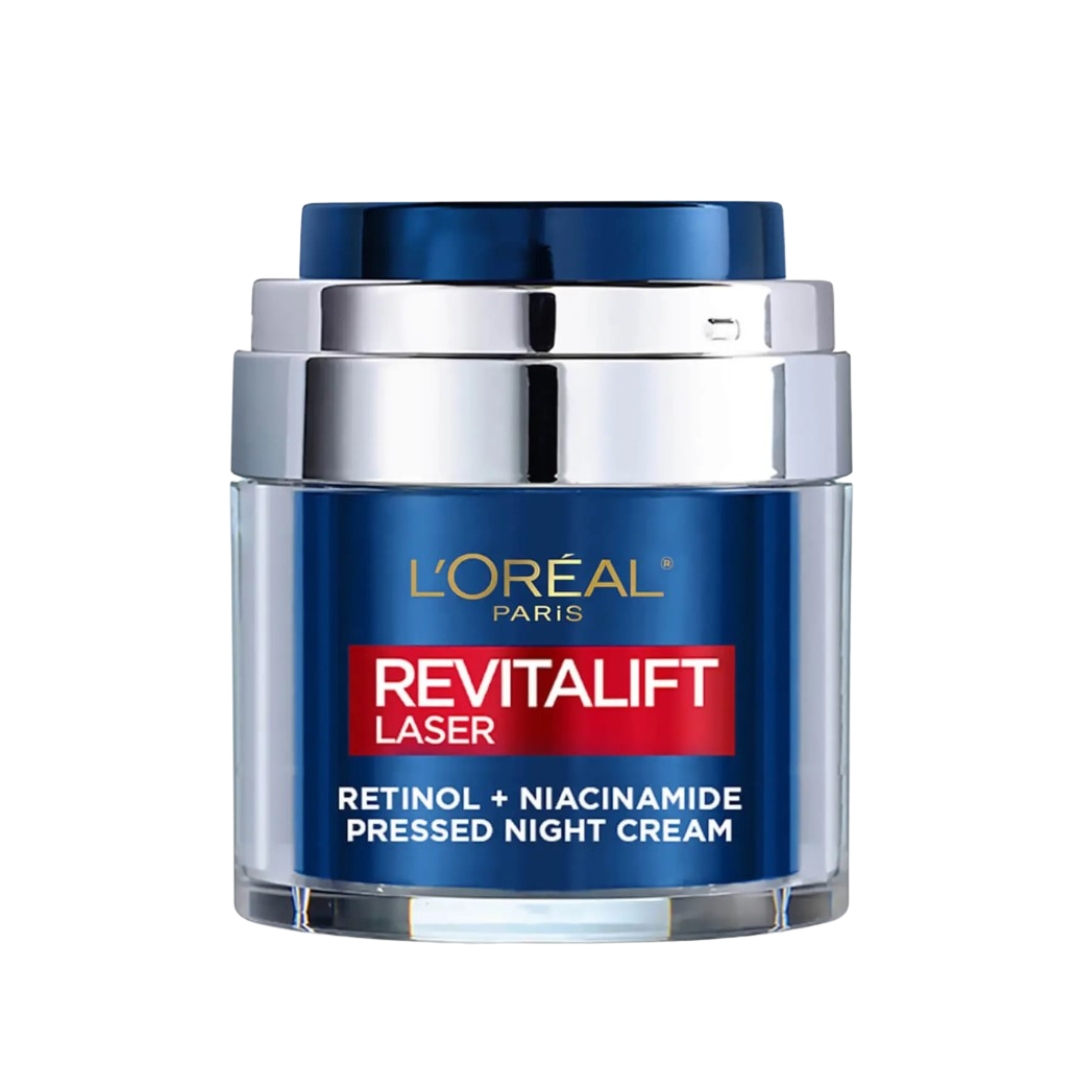
RRP: £29.99 for 50ml | Type: Night Cream: | Ingredients: Pure retinol, retinyl palmitate, niacinamide and glycerin
There is so much to love about this retinol cream, but let's start with the most important thing in any skincare product—the ingredients. This expertly blends powerful skin-improving stuff, namely pure retinol plus an ester (retinyl palmitate) with gentler skin-brightening and oil-regulating niacinamide, plus moisturizing and soothing things like hyaluronic acid and glycerin. It manages, unusually to pack all of this goodness into what feels like a pleasant, normal night cream texture with no chemical smells (although it is lightly fragranced, which may not suit everyone.)
As with any retinol you're advised to build usage up from every few days to nightly use.
Reasons to buy: features two forms of retinol and both moisturizes and treats the skin
Reasons to avoid: Lightly fragranced
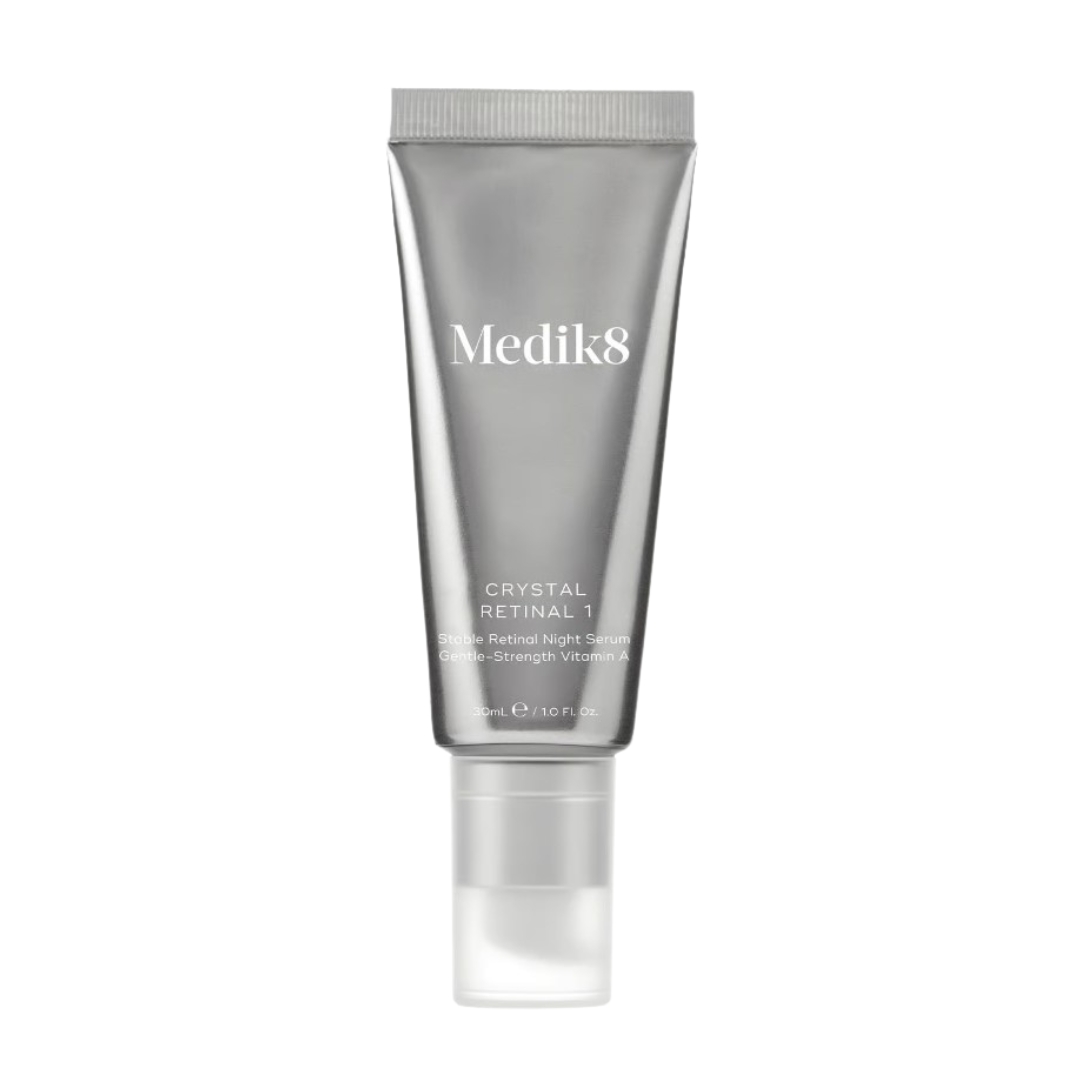
RRP: £45 for 30ml | Type: Cream | Ingredients: Retinol, hyaluronic acid and vitamin E
Medik8's Crystal Retinol 1 is a great option for retinol beginners, as it's a stable, gentle retinol cream that should be suitable for even sensitive skin. If you and your skin are happy with this and want to progress, then move up to the next strength for your next tube. As well as taking the worry out of building up a tolerance to this powerful ingredient, the products are lovely too—they have a creamy, spreadable texture that only gets a little on the thicker, yellower side as you work up to 0.2% strength.
Reasons to buy: a gentle beginner option, which features humectant hyaluronic acid and soothing vitamin E and has a pleasant texture
Reasons to avoid: gets pricier at higher strengths
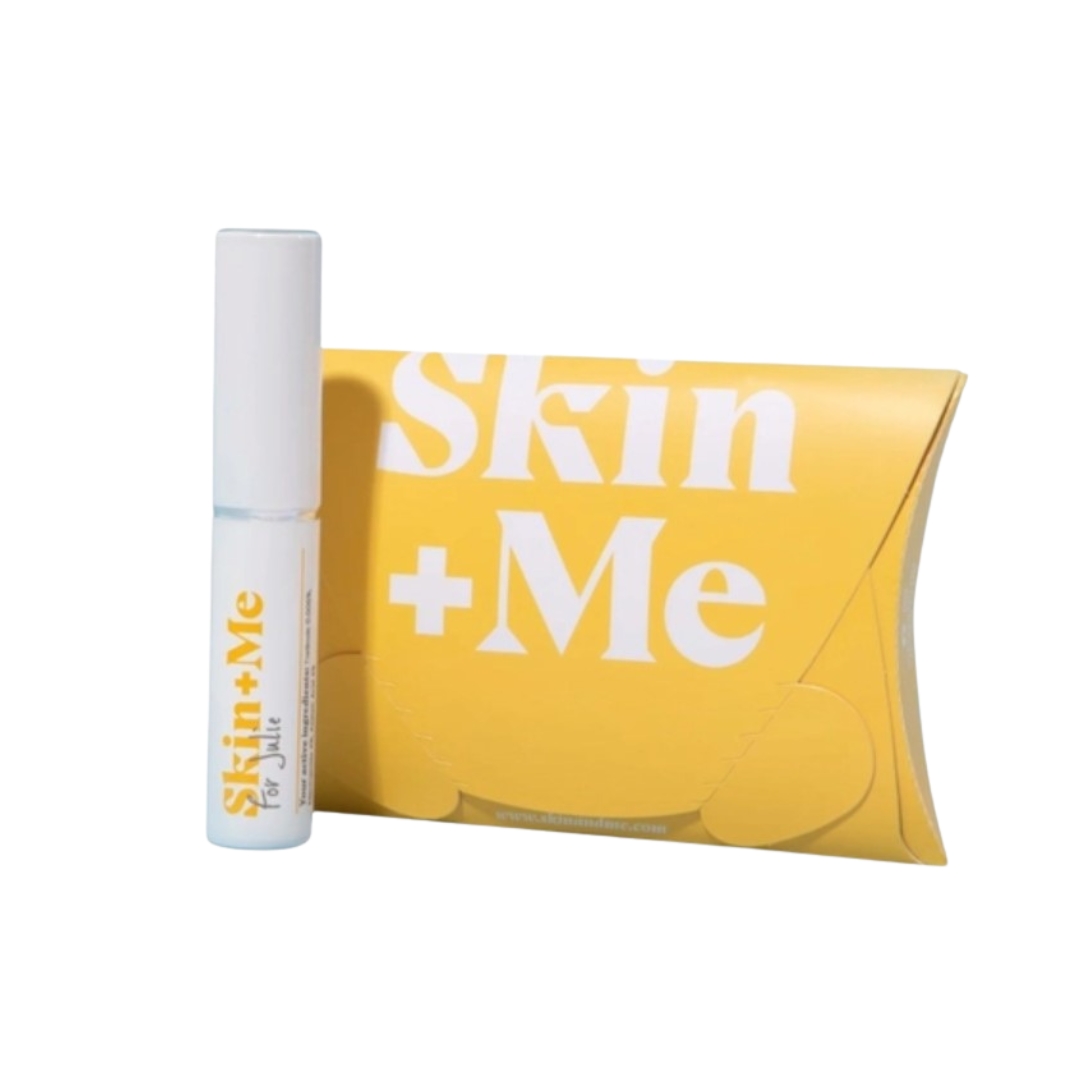
RRP: £19.99 | Type: Personalised skincare | Ingredients: Usually tretinoin, although this is bespoke
Let us caveat this by first saying that if you have severe, persistent acne or another skin concern that's having an impact on your confidence, a visit to the GP is needed. However, if you have mild to moderate skin concerns and a derm appointment is not possible, Skin + Me is the next best thing.
Offering personalized skincare, based on an assessment by the brand's team of dermatologists, this is a great option for those who need support or advice on their skin's needs. Naturally, the ingredients depend on your skin, but as long as you're a suitable candidate you can bet tretinoin, aka prescription-strength retinol, will be in there, starting with a very low dose so you can build tolerance. The formula is delivered in an airtight aluminium 'daily doser' that contains exactly one month's supply.
Reasons to buy: Prescription-grade retinol and is customized to your needs
Reasons to avoid: Subscription service only
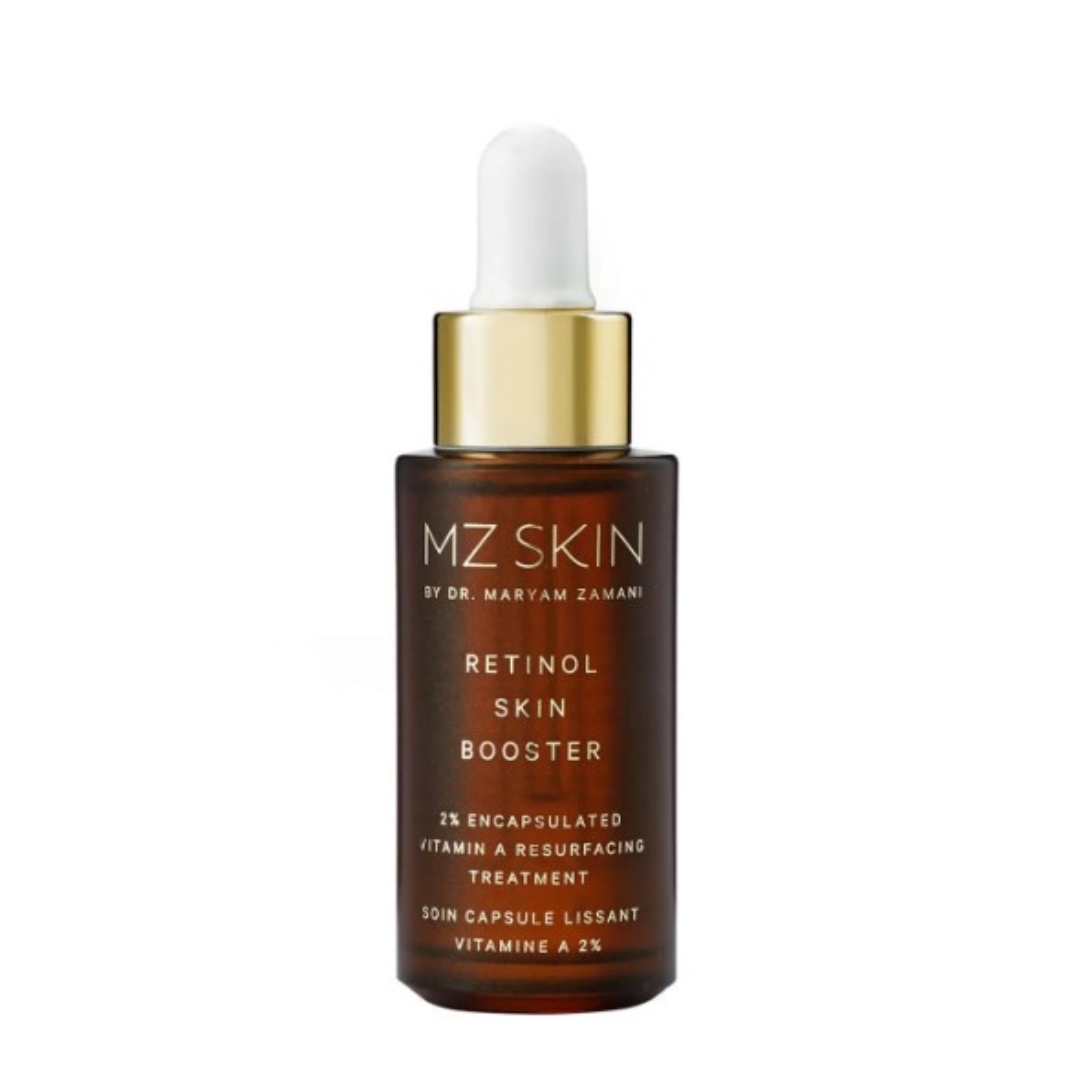
RRP: £110 for 20ml | Type: Night serum | Ingredients: Pure retinol and malic acid
Eye-wateringly expensive? Yes. But does it work? Absolutely. The main USP of this high-end retinol serum is that it, within a very concise ingredients list, pure retinol in encapsulated form mingles with exfoliating alpha hydroxy acid and malic acid. This means that while retinol does its thing at speeding up cell turnover, a surface-level exfoliation also takes place, helping shift dull, dead cells and hyperpigmentation. Malic acid is known as one of the gentler skincare acids, so is a smart choice for combining with retinol, especially if you have reactive skin.
Reasons to buy: Leaves skin soft and plump, lightens dark spots and exfoliates
Reasons to avoid: High price-tag
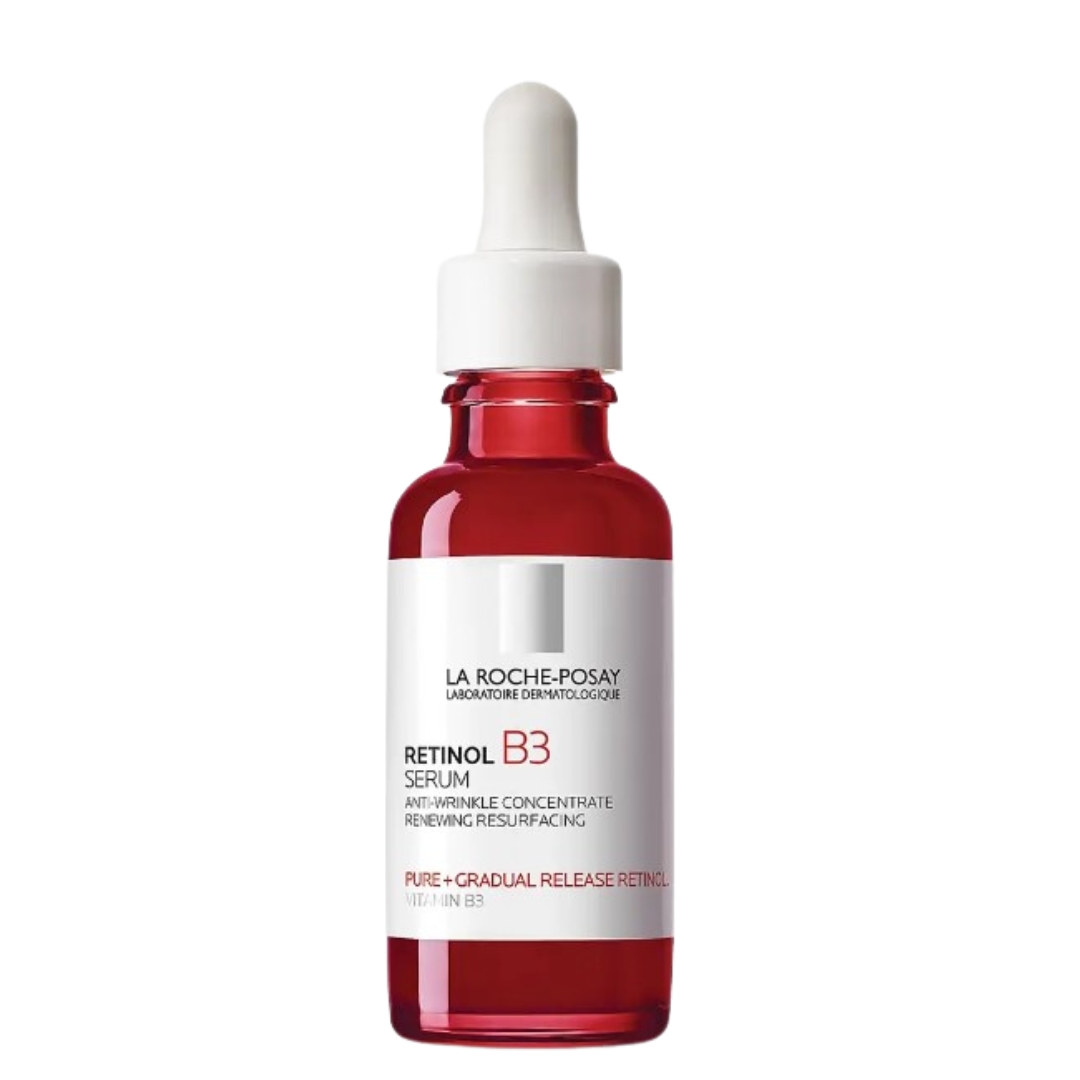
RRP: £48 for 30ml| Type: Serum | Ingredients: Retinol, vitamin B3 and glycerin
If your skin finds heavy-duty ingredients difficult to tolerate, try this slow-release retinol serum. It contains pure retinol, but in a gentle 0.3% strength and works just as the name suggests. So instead of bombarding your skin in one go, it gently drip-feeds it over a longer period. We loved the lighter texture of this, as it looks and feels like a nice hydrating serum, with a bit of youth-boosting action on the side. Plus, Vitamin B3 and glycerin help counteract potential dryness by restoring the skin barrier and topping up hydration levels.
Reasons to buy: features a silky texture, a little goes a long way and is suitable for sensitive skin
Reasons to avoid: Seeing results can take a while
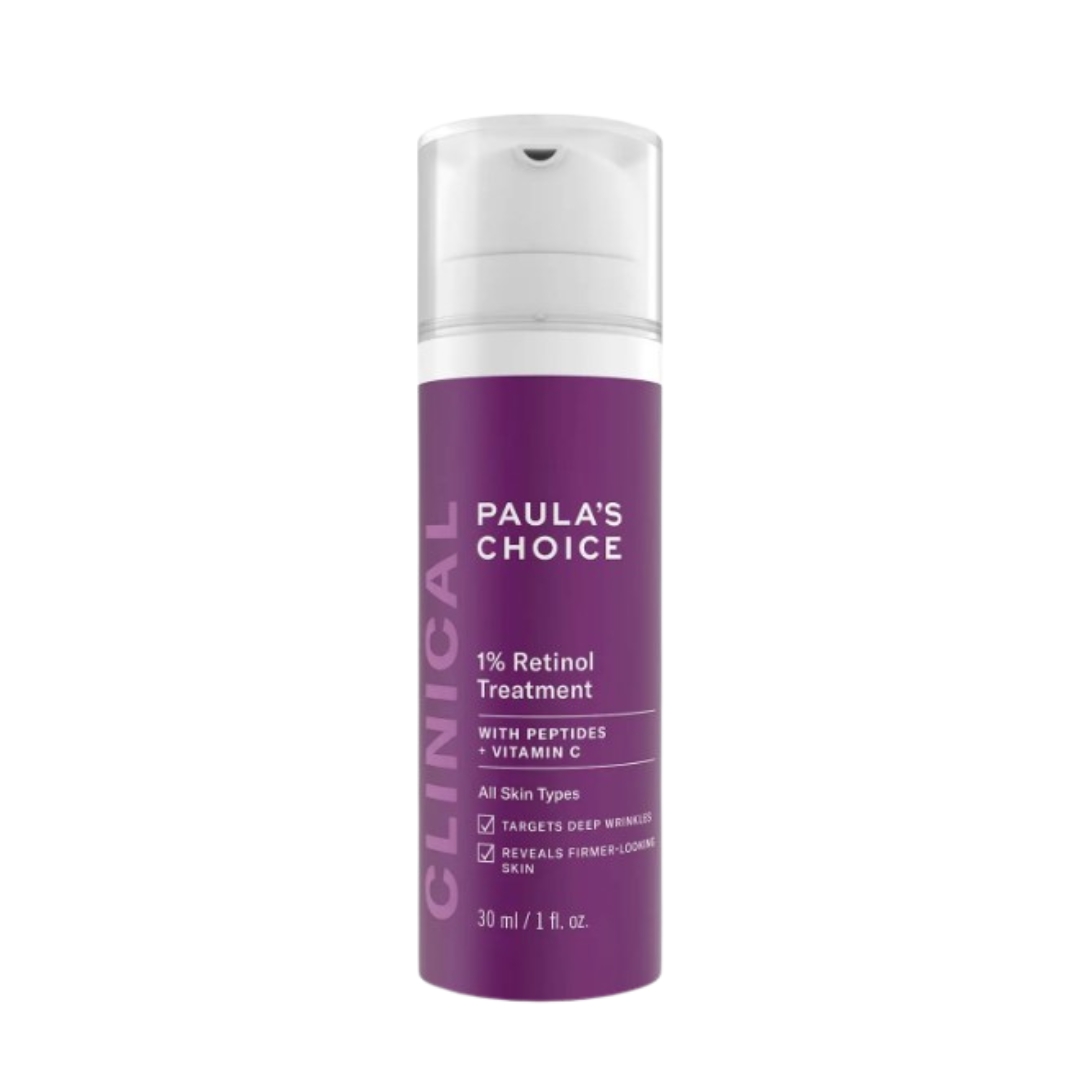
RRP: £59 for 30ml | Type: Treatment | Ingredients: Retinol, peptides, liquorice root extract
This retinol and peptide treatment works on multiple levels thanks to a heavyweight formulation combining a high dosage of pure retinol (1%) plus gentler but still effective brightening extracts. If your skin bugbear is hyperpigmentation, retinol is an effective solution. By speeding up cell turnover to reveal fresh cells, dark spots on the skin's surface can be reduced. This particular retinol serum is lightweight and a joy to use, absorbing quickly with no tingling.
Reasons to buy: Keeps breakouts and pigmentation at bay
Reasons to avoid: Very powerful, requires a slow build-up Impressive results
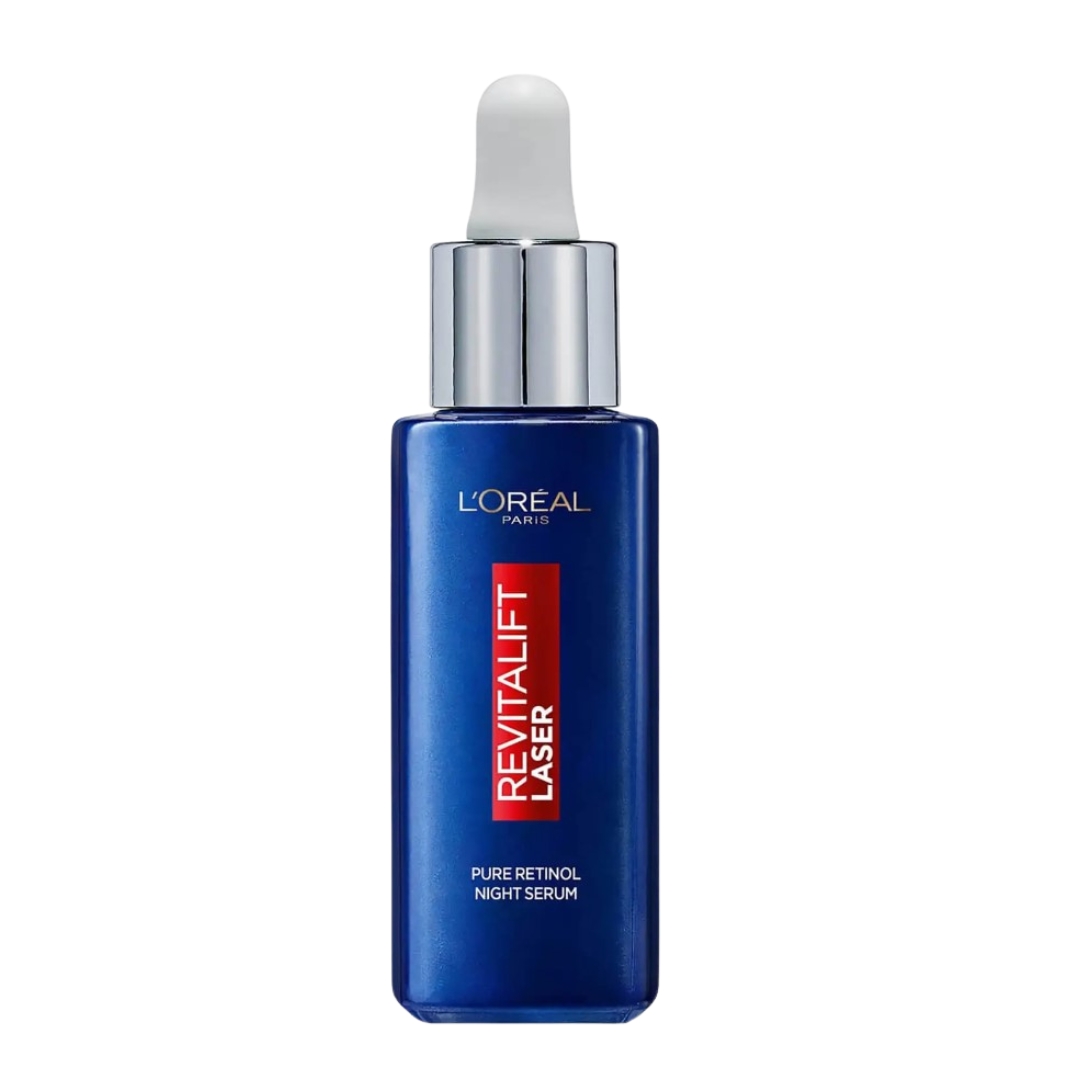
RRP: £29.99 for 30ml| Type: Serum | Ingredients: Retinol and hyaluronic acid
Want to dip your toe into retinol without a hefty price commitment? We get it, not everyone's skin gets on with this ingredient, which is why this purse-friendly retinol serum is a great shout. It's made with patent-pending, ultra-stable pure retinol as well as plumping hyaluronic acid in a clever UV-proof pipette. So if you were debating whether to use hyaluronic acid vs retinol, there's really no need to choose. It feels light and pleasant to apply, and we experienced no reactiveness whatsoever on testing.
Reasons to buy: Very affordable, nice texture and hydrates
Reasons to avoid: Can take a while for your skin to adjust
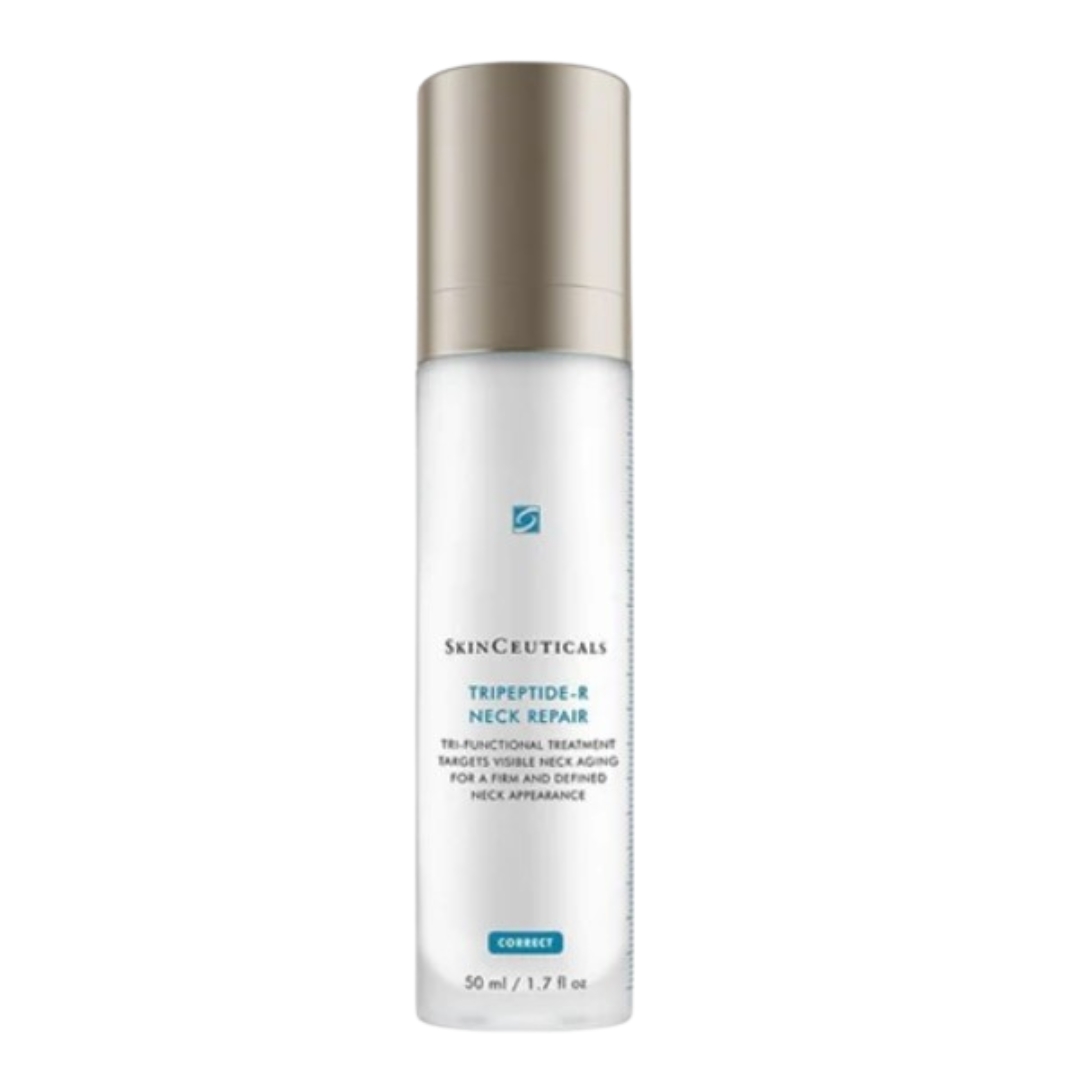
RRP: £128 for 50ml | Type: Neck cream | Ingredient: Retinol and peptides
The neck is often left out of our skincare routine, and yet it is often just as exposed as our faces are to elements such as UV and pollution so can take the brunt of visible ageing. So, if you fancy treating your neck to some retinol goodness, Skinceuticals have designed this with a slightly lower dosage than they would for the face, using 0.2% pure encapsulated retinol that is released steadily into the skin. They've also included peptides, which work to re-energize ageing skin without irritation. It is gentle enough for everyday use, but if you are sensitive we’d still recommend starting slow and building your tolerance week by week.
Reasons to buy: Formulated especially for the neck and works gently, using high-tech ingredients
Reasons to avoid: High price tag
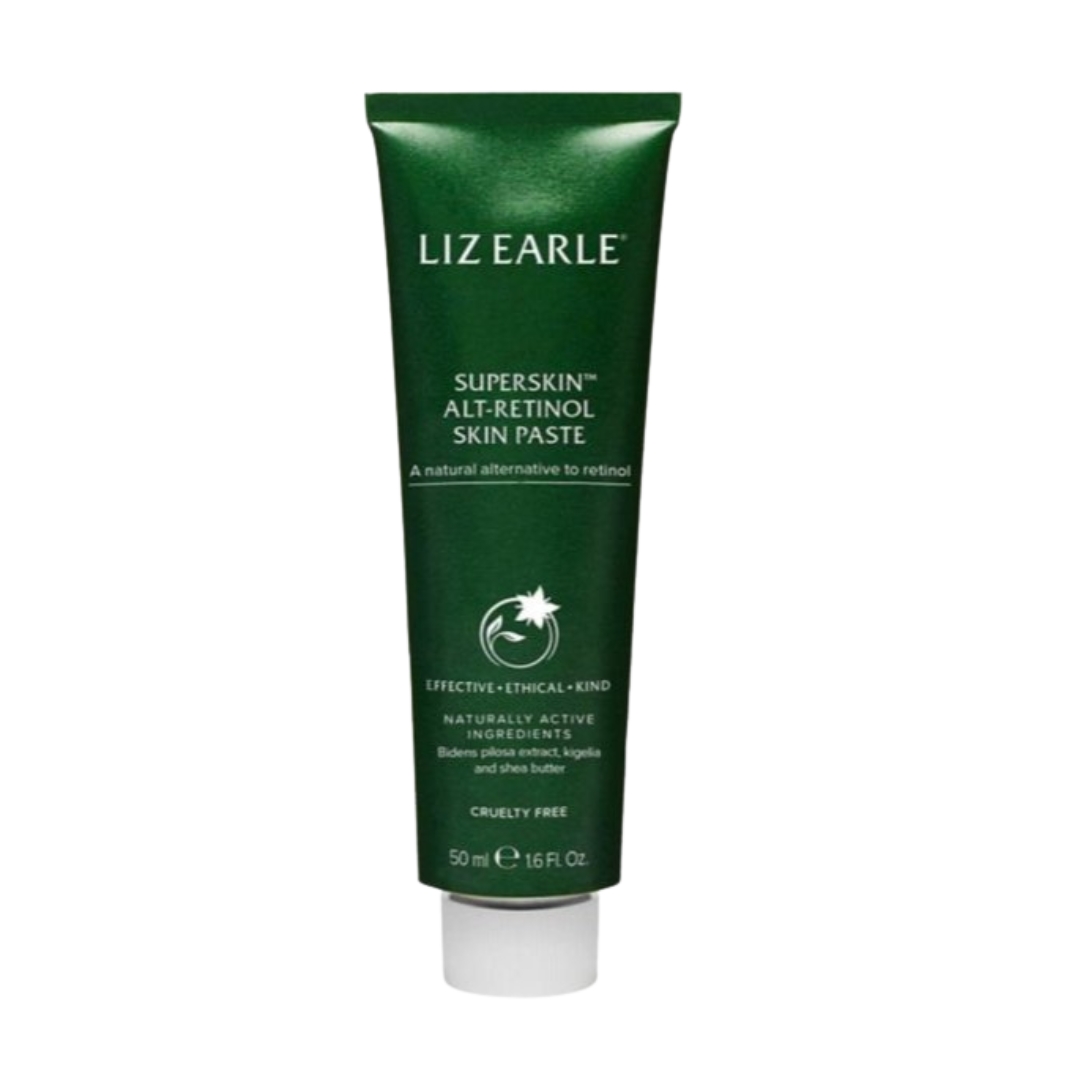
RRP: £45 for 50ml | Type: Cream | Ingredients: Bidens pilosa, kigelia fruit extract and shea butter
If your skin just cannot tolerate retinol, there are other skincare ingredients that offer results without setting your face on fire. Liz Earle has formulated this alternative, for example, with impressive results and zero irritation. It relies on two ingredients. A skin-plumping plant extract called kigelia sourced in Zimbabwe, and bidens pilosa, another plant extract that works to smooth fine lines and wrinkles. This isn’t retinol, so you have to manage expectations slightly when it comes to the results. However, from a user trial of 63 women who have tried retinol before, 90% agreed this gave them all the benefits they’d expect from retinol without the irritation.
Reasons to buy: Great for sensitive skin and skin that can't tolerate retinol
Reasons to avoid: Results aren't as dramatic as other products on this list
How to choose the best retinol creams and serums
"Retinol is a good ingredient to incorporate into your routine because it is probably the most studied skincare ingredient, which we know delivers results backed by science," explains GP and holistic aesthetics doctor Dr. Rabia Malik. "It is the first vitamin approved by the USA’s Food and Drug Administration (FDA) as an ‘anti-wrinkle’ agent."
So, if you're looking to add this ingredient to your beauty arsenal, picking the best retinol cream, or the best night serum including retinol if you prefer lighter textures, begins with understanding the distinctions between types of retinol. This in turn determines the answer to how often should you use retinol and whether you experience side effects or see dramatic results.
Feeling confused about retinoid vs retinol? Dr. Malik's classifications will help:
Sign up for the woman&home newsletter
Sign up to our free daily email for the latest royal and entertainment news, interesting opinion, expert advice on styling and beauty trends, and no-nonsense guides to the health and wellness questions you want answered.
- Tretinoin: Weighing up retinol vs tretinoin? Tretinoin (all trans-retinoic acid) is the most bioactive form of topical vitamin A. It requires a prescription and is usually used to help manage acne and also some forms of pigmentation (if you are interested in this ingredient, give our Skin + Me review a read)
- Pre retinol: is the most frequently used form of vitamin A in cosmeceuticals because it is stable and usually well tolerated. However, it comes in different percentages and formulations, so I would recommend starting with a lower percentage and slowly building up.
- Retinal: is the oxidized form of retinol. It is stable and well tolerated but may not be as effective. Again, this depends on the concentration used and the formulation of the product.
- Retinyl esters: such as retinyl palmitate and retinyl acetate, are commonly used in cosmeceuticals as they are very stable, but they need to be converted to retinol, and then into retinoic acid to be effective. So there is decreased effectiveness of anti-wrinkle properties compared with retinol and retinoic acid.
How does retinol work in the skin?
As you might have already gathered, the best retinol creams are impressive and efficient multi-taskers. Retinol works in a number of different ways to improve the quality of your complexion.
“With age, skin’s natural cell turnover decreases resulting in dull, uneven skin tone and rough skin texture,” says Dr. Zamani. “Topical retinol creams help promote turnover of surface cells, which means dead skin cells are sloughed away faster, revealing visibly healthier and brighter skin. Similarly, this mechanism helps improve the appearance of blemishes by preventing dead skin cells from clogging pores.”
To help plump and smooth sagging, crepey skin, “retinol reactivates our organic collagen production and simultaneously targets the enzymes that break it down,” explains expert dermatologist Dr. Dennis Gross. “Thus, when delivered properly, retinol increases cellular turnover and treats premature signs of aging.”
Due to the potency of vitamin A, it’s not uncommon to experience some small-scale side effects. “Dryness, irritation, redness and sun sensitivity can occur when using a high concentration of retinol,” advises Dr. Gross. “A tip to avoid sensitivity and irritation is to pair retinol with an all-physical SPF of 30-50. This is just another reason why regular SPF application is so important, as well as defending our skin from irritation, premature signs of aging, hyperpigmentation and skin cancer.”
woman&home thanks Dr. Maryam Zamani of MZ Skin, Dr. Dennis Gross of Dr. Dennis Gross Skincare, and Dr. Rabia Malik of Skin W1 for their time and expertise.
Jess Beech is an experienced fashion and beauty editor, with more than eight years experience in the publishing industry. She has written for woman&home, GoodtoKnow, Now, Woman, Woman’s Weekly, Woman’s Own and Chat, and is a former Deputy Fashion & Beauty Editor at Future PLC. A beauty obsessive, Jess has tried everything from cryotherapy to chemical peels (minus the Samantha in Sex and The City-worthy redness) and interviewed experts including Jo Malone and Trinny Woodall.
- Naomi JamiesonDigital Beauty Writer
- Fiona McKimBeauty Editor, womanandhome.com
-
 Kate Moss's best looks, from 90s slip dresses to leopard print staples
Kate Moss's best looks, from 90s slip dresses to leopard print staplesEffortless and stylish, our favourite supermodel has an iconic style that can easily be recreated
By Kathryn Lewsey
-
 Helen Skelton's layered look is giving me plenty of country chic style inspiration this Earth Day
Helen Skelton's layered look is giving me plenty of country chic style inspiration this Earth DayShe paired a mocha-coloured jumper with a blue shirt and a pair of wellies by Kate Middleton's favourite brand
By Caroline Parr